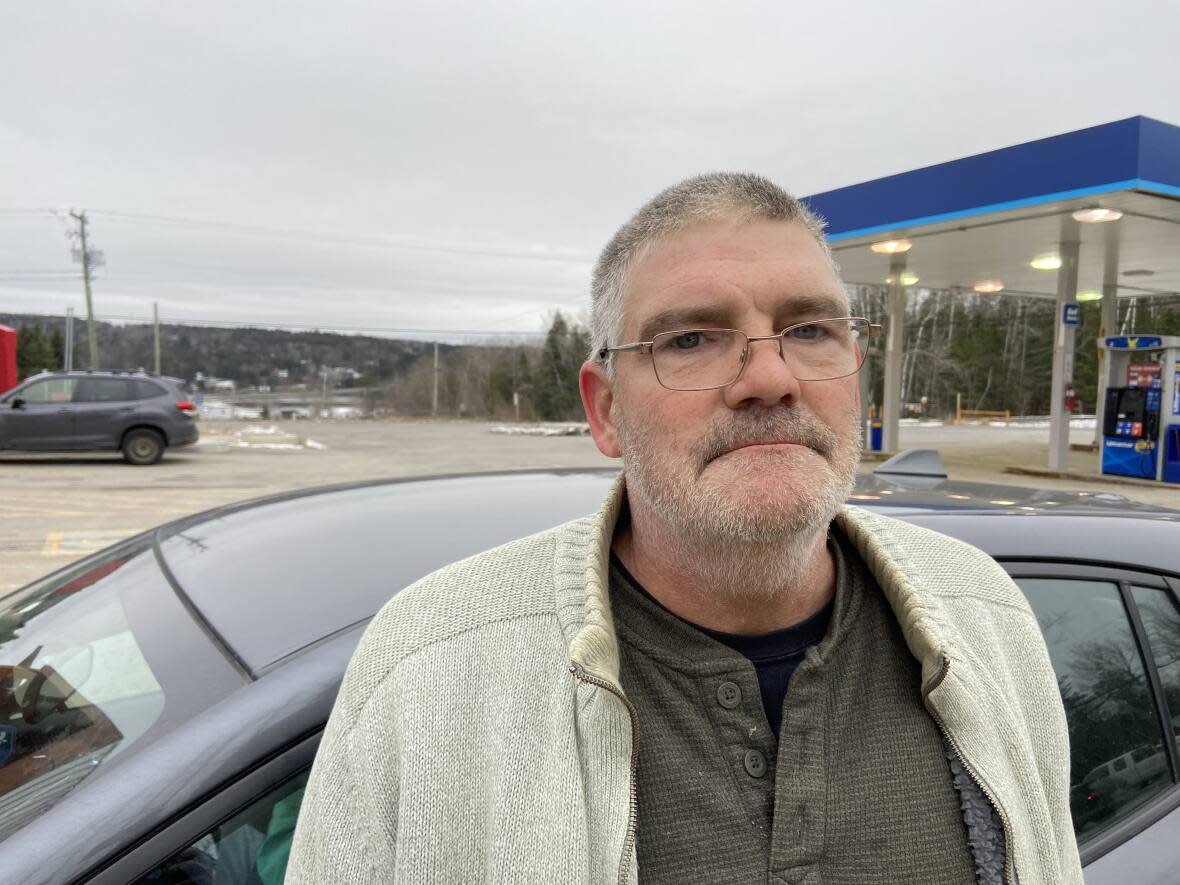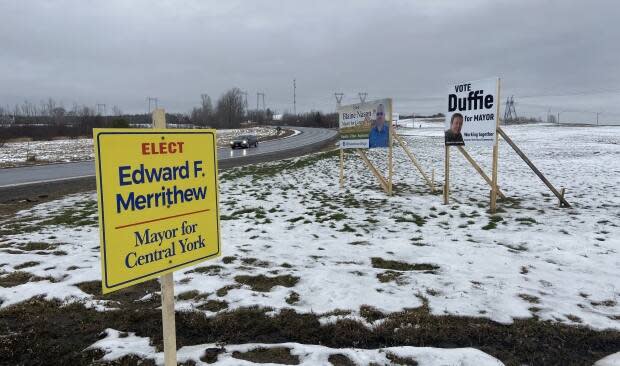Excitement, apathy as some N.B. residents to vote for first time in municipal elections

David Jensen has lived in Keswick Ridge since 2004 and has spent the last 18 years trying to get someone to fix a ditch that's been leaking water into his backyard.
He has high hopes for Monday. He finally has the chance to vote for a mayor and council who might listen — and solve a problem neglected by other levels of government.
"I feel good about it," he said of the municipal election being held in the new Central York Rural Community.
"With a mayor or something, I might be able to talk to him and maybe get something done because it affects me, but it also affects the neighbour below me, the neighbour below that, and the neighbour below that, right?"
Jensen is one of thousands of New Brunswickers getting a chance for the first time to vote for local representatives. His community goes from being part of a local service district to being part of Central York as of Jan. 1, 2023.
The change is the result of local government reforms undertaken by the provincial government, which sees the creation of 50 new municipalities and 12 new rural districts.
A total of 231,000 people across all of those communities will be able to vote for mayors, councillors and district members, with about 12.5 per cent of them having already voted in advance polling and at their returning office.
However, local interest in the elections has come under question, as 15 mayors, 84 councillors, and 17 rural district members have already won by acclamation.
In Central York, there's a four-way race for mayor, but three of the community's seven councillors have already won by acclamation.
Choosing not to vote
As a resident of Mactaquac, Jacqueline Turley also has the chance to vote for a mayor and councillor for Central York but has already decided she won't.
"I'm not going to vote because I'm useless," she said. "I don't know enough about what's going on to have an opinion about anything."
Turley said her community is quiet, and there are no issues she wants addressed other than noise from motorcycles in the summertime.

But she does think some of her neighbours will enjoy having elected officials they can air their grievances to.
"I hope they [council members] have a lot of time, and I'm sure they're going to hear a lot of complaints because we hear that more than the good stuff. So I wish them luck."
Expected for first elections
Compared to federal and provincial elections, municipal elections always suffer from lower voter turnout, said J.P. Lewis, a political science professor at the University of New Brunswick in Saint John.
"I think it's just the nature of the positions that are being filled, right. They're important positions, but they aren't necessarily high-profile," he said.

Contributing to worse engagement is the fact that many of those residents haven't been represented by a municipal council before. As a result, Lewis said, they might not fully appreciate the benefits chosing a local council can bring.
"It's significant for some of these areas to have direct representation for the first time.
"And you know, it might take [time] to see how this works out for there to be competitive elections in the future, where you have maybe fewer acclaimed races and you have more attention to the races."
Kim Poffenroth, New Brunswick's chief electoral officer, said it's impossible to say what voter turnout will be like until polls close on Monday.
She agreed municipal elections typically bring out fewer voters but said it's important to remember the work done by mayors and councillors.
"Whether it's road clearing, fire, police, recreation facilities, those are sort of things that impact people on a daily basis," she said, speaking on Information Morning Fredericton.
"And everyone who's eligible to vote should exercise that democratic right to get out there and decide who they want making those."
She said eligible voters should have received a voter information card in the mail, with information on where they can vote and what they need to bring.
Information about candidates running in their municipality or district can also be found online at electionsnb.ca.

 Yahoo Movies
Yahoo Movies 
